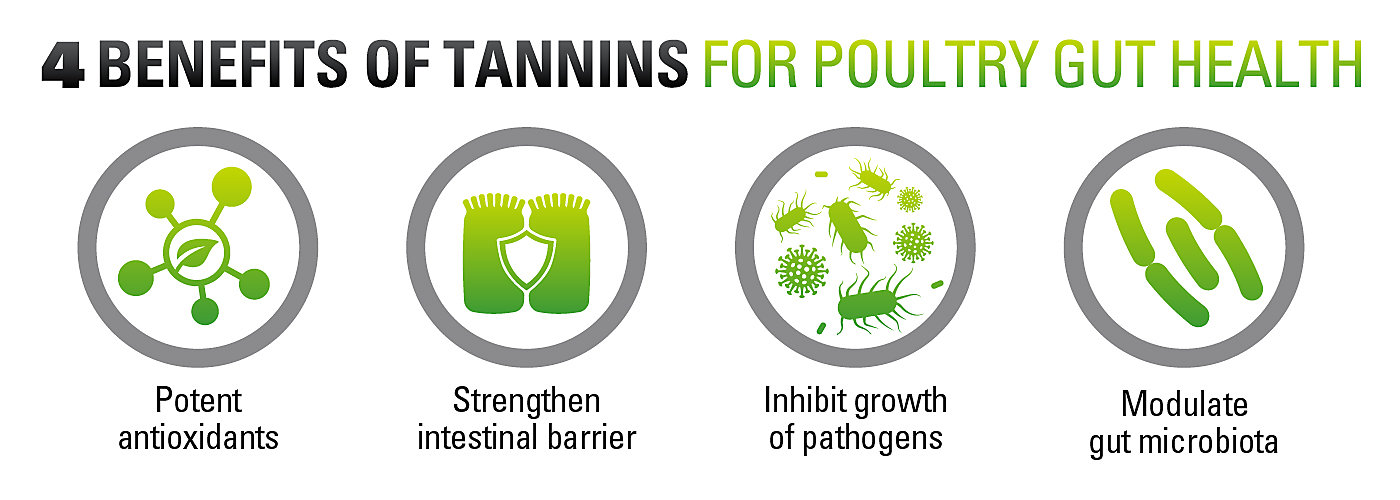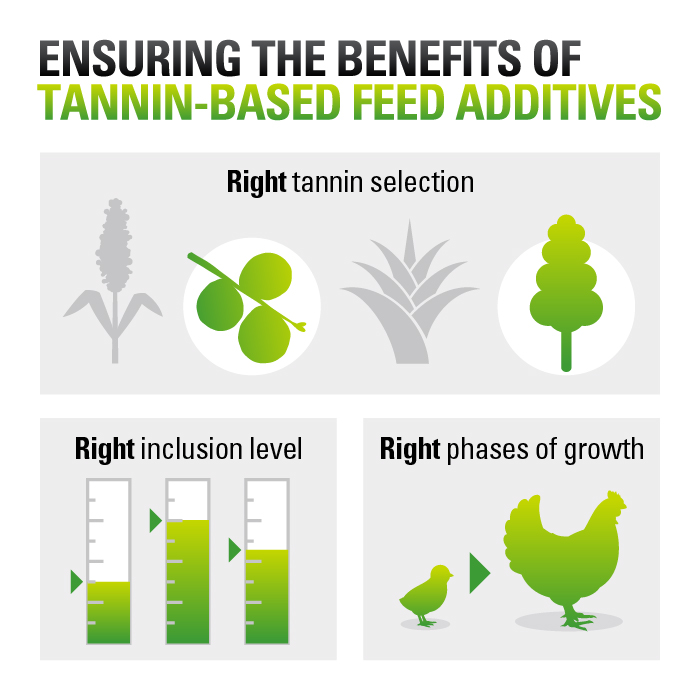Tannins are Potent Antioxidants
Tannins are recognized as highly effective natural antioxidants. Due to their polyphenolic structure, tannins have significant capacity to scavenge free radicals which could otherwise damage intestinal cell membranes leading to oxidative stress and inflammation.
By supporting redox balance, tannins can help to control oxidative stress as well as inflammatory responses in the intestine. For example, application of tannins has been reported to reduce oxidative and inflammatory stress in colon tissue.2 Tannins may also help enhance antioxidant status in serum of muscle tissue as well as improve shelf-life of refrigerated poultry products.
Tannins Strengthen the Intestinal Barrier
The last time you enjoyed a rich, red wine or ate a bite of 90% dark chocolate, do you recall the acidic, bitter flavor on your tongue? That flavor is due to the astringent, protein-binding property that all tannins possess. Astringency, by definition, describes the ability of a molecule to constrict, or tighten, body cells and other cellular tissues, and this property of tannins can pay major dividends for gut health.
When it comes to intestinal integrity, maintenance of tight junctions between intestinal epithelial cells is critical. Environmental stress, inflammation or enteric pathogens can cause barrier breakdown leading to leaky gut syndrome, malabsorption of nutrients and depressed growth. By helping to tighten junctions between intestinal epithelial cells, tannins can reduce intestinal lesion formation, thereby strengthening intestinal barrier integrity to support performance.
Tannins Inhibit Growth of Pathogens
Tannins have been shown to inhibit growth of several poultry pathogens in vitro, including Campylobacter spp.3, Salmonella spp.3 and Clostridium perfringens.4 The antimicrobial, anti-parasitic and anti-viral effects of tannins are likely related to tannin complexation with microbial enzymes and/or metal ions, like iron, that are required for normal pathogen growth and metabolism.5,6
Interestingly, development of bacterial resistance to tannins is expected to be difficult due to the complex structure of tannin molecules. In vivo studies have further shown that feeding tannins can help minimize the negative effects of coccidiosis and necrotic enteritis challenge on poultry performance.7,8
Tannins Positively Modulate Gut Microbiota and Mucosal Immunity



